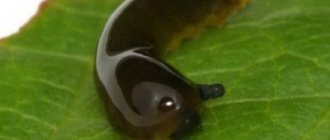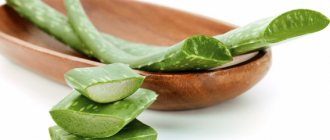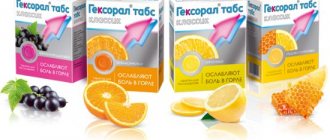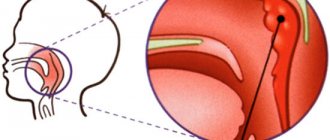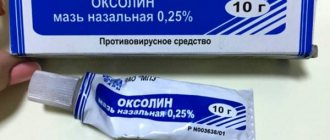Rhinitis or runny nose is a symptom that is caused by various factors. This could be hypothermia, viral, bacterial, fungal infection, allergens, hormonal changes in the body, mechanical damage.
Most often, otolaryngologists have to deal with the viral and allergic nature of the runny nose, and as a complication, the third most common complication is bacterial rhinitis.
Viral runny nose in most cases occurs during periods of epidemiological instability. Allergic rhinitis can occur year-round, depending on the allergen. If a runny nose occurs when plants are blooming, then, as a rule, it is spring or early summer. If you are allergic to dust and animal dander, the snot discharge will be constant as long as the patient is in contact with the allergen.
Rhinitis brings negative symptoms to the patient: snot flows from the nose, congestion is observed, the mucous membrane swells, it is difficult to breathe, etc. To alleviate the patient’s condition, experts offer various nasal remedies, including ointments.
In our article we will talk about nasal ointments. We will find out which nasal ointment is best to use for prevention and treatment, and also focus on the most popular anti-inflammatory drugs used in modern otolaryngology.
Traditional methods for nasal congestion
Nasal congestion can be treated with juice squeezed from plants:
- Kalanchoe juice is instilled, after which the person begins to sneeze heavily and often, due to this, mucus is removed from the nose. This procedure must be repeated for 2 days.
- Valerian root has healing properties. It is crushed, filled with vegetable oil and used after it has stood in a dark place for 7 days.
- Aloe juice has a detrimental effect on microbes in the nasal mucosa. To do this, the leaves are kept in a cold place for 7 days. They are used by grinding them together with honey in a 1:1 ratio.
- You can treat nasal congestion with sea buckthorn oil. 100 g of sea buckthorn cake is poured into 1 liter of olive oil and left for 1 month in a warm place. This product cleans the nose well; you can also add carrot juice to the composition.
Thuja oil is actively used in folk medicine to treat nasal congestion. You need to instill 8 drops of thuja oil from a pipette every day, 3 times a day for 14 days. Then take a break and do not use any cold remedies for a week. After the break, continue treatment.
Antibiotic nasal sprays
There are still few drugs with similar effects, but numerous studies have demonstrated their effectiveness and safety. In fact, these are the only topical medications that are quite effective in helping to fight infection.
Similar drugs include:
Isofra
The spray contains an antibiotic of the aminoglycoside group - framycetin. It affects the membranes of bacteria, disrupts their metabolism, which leads to their rapid death. A significant disadvantage of the drug is the suppression of the growth and reproduction of representatives of the natural microflora of the nasal sinuses, especially with long-term (more than 10 days) use. The cost of a 15 ml bottle is 250-260 rubles.
Bioporax
It is an aerosol consisting of tiny particles of a substance intended for irrigation of the mouth and nose. The antibiotic fusafungin, which is part of it, has a wide spectrum of bacteriostatic action and limited antifungal activity. This means that it is able to stop the growth and reproduction of pathogens, but not cause their death. Bioporax is almost completely safe to use; the only possible side effect is allergic reactions. Its price is quite high - 450 rubles per 10 ml of the drug.
Polydexa with phenylephrine
The drug contains several compounds that provide a complex effect: anti-inflammatory, vasoconstrictor and antibacterial. The drug is active against a wide group of gram-negative and gram-positive microorganisms, but its use is contraindicated in kidney disease, pregnancy and lactation. The average cost of the drug is 300 rubles.
Turpentine ointment is an alternative remedy for colds.
Gum turpentine is obtained from the resin and wood of coniferous trees. Terpenes and terpenoids in its composition have a strong antiseptic, local irritant and effective warming effect. Use turpentine ointment for a child with a runny nose only externally. Before going to bed, rub the upper chest and feet of a cold baby. Repeat the procedure one or two more times, carefully monitoring the condition of the little patient.
Terpenes have a warming and distracting effect, easily penetrating through the epidermis to nerve receptors. As a result, the vessels dilate and blood flow to the tissues begins. The specific smell of turpentine irritates the nerve endings in the nasal cavity and cough centers, so the ointment helps with ARVI, colds and coughs. The drug is recommended for use in the early stages of the disease. Parents should remember that the product is only used to treat children over 2 years of age. Turpentine ointment causes a burning sensation on the skin and can provoke rashes, redness and other allergic reactions.
Oil based
Oil nasal sprays perfectly soften mucous membranes, heal microcracks and disinfect surfaces. Contains extracts from medicinal herbs (sea buckthorn, eucalyptus mint, etc.).
They are prohibited for children under 2 years of age, as they can provoke allergic reactions, as well as local discomfort in the form of itching and burning.
In pediatrics, the following drugs are most often used:
Pinosol
An aerosol with an antimicrobial and anti-inflammatory effect based on eucalyptus, mint, pine oil, as well as thymol and vitamin E. Helps restore nasal breathing. Indications include rhinitis of non-allergic origin, infections and inflammation of the nasopharynx, and nasopharyngitis.
Prohibited for children under 3 years old. The course of therapy is 10 days, 1 dose up to 3-6 times a day.
Pinovit
Indications for use are acute and chronic rhinitis, laryngotracheitis, nasopharyngitis, as well as infections and inflammations of the nasopharynx. Relieves swelling, reduces inflammation and viscosity of secretions, has an antimicrobial effect, and suppresses the proliferation of fungi.
Prescribed to patients from 2 years of age, 1-2 drops up to 4 times a day, for 5-7 days.
Vitaon Baby
A balm containing olive oil, chamomile, calendula, mint and other natural ingredients. Used to lubricate mucous membranes. Relieves itching and irritation, normalizes local blood flow.
Review of ointments for the common cold: Oxolinic, Fleming, Evamenol and others
Many people are interested in how to deal with rhinitis. Among all the medicines, running cold ointment is not very effective. This is due to the form of the drug and the method of applying it to the inflamed mucous membrane. However, some people choose to treat rhinitis with this type of treatment. Based on this, the question arises which nasal ointments are most effective.
Ointment for runny nose
Each type of rhinitis has its own pathogen. Depending on this irritant, there are remedies:
- antiseptic;
- antivirus.
They are characterized by homeopathic and combined composition. That is why each case has its own nasal ointment. Below you will find a list of the most popular nasal ointments.
Antiviral ointments
This type of topical drug application is not used as a drug against viral organisms, but as a prophylactic agent that reduces the risk of infection.
Oxolinic ointment 0.25%
This is an antiviral drug for the common cold, the main component of which is oxolin. It has a strong effect against influenza and herpes spectrum viruses. For the treatment of rhinitis, only 25% of the composition is purchased. It should be lubricated in the nasal passages. Take measures three times a day until complete recovery.
Viferon
This is an antiviral ointment with interferon as the main ingredient. The cream is characterized by antiviral and immunomodulatory effects. With regular use, virus particles are removed from pathogenic cells.
Highly effective in the early stages of the disease, Viferon is often used regularly several days before and on the first day after infection.
The product should be applied three times daily to a loose layer inside the nostrils. The duration of treatment is from 5 to 14 days. Thanks to force-free adsorption, the product has virtually no external reactions.
This allows its use in pregnant women, nursing mothers and newborns. Very rarely, allergic reactions may occur.
Homeopathic medicines
Homeopathic ointments for the common cold are increasingly in demand among patients. Such drugs are characterized by disinfecting, decongestant, antiviral and immunostimulating effects.
Fleming's ointment
This medicine is a combination of menthol, anethole, cineole, glycosides and carotenoids. Used for various types of nose running. It is characterized by a very good antimicrobial effect, restores the stability of the immune system, and normalizes blood circulation.
This medicine can lubricate not only the skin, but also the mucous membrane. The most effective option is to lubricate cotton swabs and place them in the nasal passages three times a day for a quarter of an hour for 10 days.
If the components in the composition are hypersensitive to individual components, side effects may occur.
Thuja
This is a combined homeopathic cream containing
- thuja extracts;
- Flax extracts;
- Propolis;
- Chamomile;
- Glycerol;
- Alcohol extract;
- Palmolive.
Highly effective for long-term non-allergic rhinitis and serial complaints of sinusitis. You can only use this medicine externally. Ointment no more than three times a day.
Apply a loose layer to the sinus and root area of the nose. This drug should not be taken by a child under 3 years of age who is hypersensitive to the ingredients in the formulation.
External reactions may include itching and irritation.
Vietnamese balm Star
Balsam star is a cure for most diseases. Successful use of attachments for inhalation, acupressure and aroma lamps. The effectiveness of this medicine is guaranteed by its unique composition. It easily penetrates the epidermis. Each component has high activity:
- carnation;
- eucalyptus;
- camphor;
- mint;
- Chinese brown.
The drug can only be applied to the epidermis. Do not smear the mucous membrane, otherwise a burn will occur. The drug has a strong irritant effect. Better for cold runny nose.
Combined products
This group of nasal products combats the glands due to the antibacterial effects of the ingredients. The most effective drugs for rhinitis of various types are evamenol and pinisol.
Evamenol
Evamenol is approved for use in children over two years of age and pregnant women. The drug contains eucalyptus oleoresin and menthol extract. This medicine has the following effects:
- pain reliever;
- disinfectant;
- decongestant;
anti-inflammatory.
Nasal drainage ointment for children can be used for sinusitis; ointment for mucous membranes is needed three times a day for a week. Rhinitis goes away in four days.
Breathing improves after the first use. There is no burning sensation when taking medications. The drug can be used for prophylaxis.
Should not be used without first consulting a physician.
Pinosol
Pinosol is a product that contains only natural ingredients. Effectively used against chronic subatrophic rhinitis associated with dehydration and dryness of the mucous membranes. included:
- Mint;
- Pine;
- Thyme;
- Eucalyptus;
- Vitamin E.
The drug is highly effective against staphylococci, E. coli and yeast-like fungi. This drug can be used in children over two years of age. Duration of therapy is at least 2 weeks.
Antiseptic ointments
Doctors advise using disinfectants if the disease progresses in patients with bacterial infections. These can be prolonged rhinitis and sinusitis series diseases.
Levomekol
This drug is actively used in the treatment of bacterial rhinitis. It is effective for sinus inflammation. The treatment helps with inflammation of the maxillary sinus.
The ingredients of the drug are characterized by antibacterial effectiveness against staphylococci, streptococci, and tetanus. After use, the symptoms of purulent rhinitis and chronic rhinitis disappear.
Medicines can only be used under the supervision of a physician. Therapy is carried out only in courses.
Vishnevsky ointment
Vishnevsky’s antiseptic balsamic liniment has a very original composition:
- xeroform;
- birch resin;
- Castor oil.
The product has a very pronounced antiseptic effect. It can soften mucous membranes and increase blood circulation in tissues. This speeds up their regeneration. The medicine is used only externally.
Liniment is strictly contraindicated in patients with kidney disease, pregnant women, children under 6 years of age and in cases of individual intolerance to the ingredients. You can't use it for more than a week.
Otherwise, irritation and allergic reactions may occur.
Tetracycline ointment
An antimicrobial agent whose main active ingredient is tetracycline. Tetracycline ointment is characterized by a local effect on a number of pathogenic flora. The product is applied to the nasal mucous membranes with cotton pads. Ointment three times a day, no more than a week.
People with kidney disease, allergies, pregnant women and children under 8 years old should not buy the medicine. Applying tetracycline ointment to the nose may cause some side effects. These include nausea and vomiting, abdominal pain, tooth discoloration, and candidiasis with long-term use.
Syntomycin ointment
Synthomycin ointment is associated with antibiotics. Not recommended for use in the treatment of rhinitis. This increases the number of tetracycline-resistant microbes. Taking this drug for rhinitis provokes the progression of the disease.
This is due to the fact that the pathogenic flora has additional conditions for progression. The same goes for salicylic ointment.
If it is on the mucous membrane, it is necessary to rinse the area with plenty of water.
Runny nose gel
gels like Besteron, Vibrocil, Milistan are also effective in the fight against glands. Gels are absorbed much faster than ointments. They are rubbed from the outside onto the mucous membrane of the nasal passages. Before applying the gels, it is necessary to rinse the veins of secretions. These procedures may provide better access to the drug.
Absolutely every drug must be tested for personal sensitivity before use. Otherwise, you may harm your health. Only a doctor should prescribe the drug after examining the patient and according to his symptoms. In the case of treating children, self-medication is prohibited.
Possible interaction
Any sprays in childhood are used with extreme caution. These medications help eliminate the main symptoms, but cannot produce a full therapeutic effect.
When using drugs with similar effects, it is necessary to take into account the possible enhancement of the effect. This is especially true for vasoconstrictors. Before use, professional consultation and approval of the treating specialist for joint use is required. The main problem with combination therapies is the occurrence of drug overdose.
Aerosols are stored in places away from children so that the child cannot accidentally be poisoned by them.
Tweet Share Plus Share Send Like
Folk recipes
Before using traditional medicine, you should consult your doctor. Some components can cause allergies and burns to the mucous membrane.
The most popular recipes are presented in the table:
| Recipe | Application |
| Carrot and beet juice | Instill 2-3 rubles. 2-3 drops per day |
| Grated garlic and olive oil. | Apply 1-2 drops 2-3 r. in a day |
| Aloe juice. Cut a leaf from the plant and put it in the refrigerator for 4 hours. | Lubricate the nasal passages with juice |
| Dissolve salt in water | Rinse your nose several times a day |
| Sea buckthorn oil | Instill one drop three times a day |
Cold remedies that can be used for children can come in different forms and have different effects on the child's body. Only a doctor can prescribe a specific medicine, taking into account the individual characteristics of the body.
Article design: Vladimir the Great
Homeopathic ointments for the nose
Fleming's ointment
The ointment is a complex homeopathic remedy consisting of the following components:
- calendula officinalis;
- esculus hippocastanum;
- zinci oxydum;
- hamamelis virginiana;
- mentholum.
The ointment has a pronounced analgesic, antiviral, and antibacterial effect.
Indications for use are: allergic dermatitis, uncomplicated forms of external hemorrhoids, vasomotor runny nose. Affects microcirculatory processes. Contraindications: intolerance to the composition.
Fleming's ointment should be carefully applied to the mucous membrane of the nasal passages three times a day. It is rational to use gauze turundas with ointment in the nose (the procedure lasts 5–10 minutes). The duration of therapy is up to two weeks.
What parents need to know - how not to harm their child
Children's drops for the common cold should only be prescribed by the attending physician. Improper use of even the best drug can lead to serious and even dangerous complications. In order for a remedy for rhinitis to cope well with pathology, you need to know the following few rules:
- For children under 6 years of age, it is best to use medication in drop form. Sprays are intended for older children.
- You need to bury your nose in a lying position. First, 1-2 drops are dripped into the right nostril and turn the head to the right and up, then to the left, also turning the head to the left and up. Thus, the product reaches not only the nasal mucosa, but also the sinuses, which significantly increases the therapeutic effect.
- It is strictly forbidden to exceed the dosage recommended by the doctor. Too frequent use of drugs, especially vasoconstrictors, can quickly become addictive and also contribute to the development of drug-induced rhinitis.
- Also, you should not increase the course of treatment with antibacterial nasal drops for children. Although these medications only act locally, they can still cause a host of side effects if used too frequently.
What causes a runny nose and helps treat it?
Acute respiratory diseases occur when viruses and bacteria accumulate in the upper respiratory tract. The first to take the blow is the nasal mucosa. Symptoms of ARVI in a child are a runny nose, headache, dry cough, fever, lethargy. In the first days of illness, snot is usually watery, clear, and profuse.
The famous pediatrician E. Komarovsky notes in his speeches and articles that most often a runny nose occurs due to viral infections . Inflammation and swelling of the mucous membrane prevent further spread of pathogens down into the throat, trachea, bronchi and lungs. In addition, mucus in the nasal cavity contains substances that reduce the activity of viruses and neutralize toxins.
Any form of cold medicine for children should not cause the nasal mucosa to dry out. If the mucus dries out, the child feels discomfort and begins to breathe through the mouth. Then the sputum in the bronchi becomes viscous, which creates the preconditions for the development of inflammation (bronchitis). Mucus thickens faster, dries out and turns into crusts with frequent use of vasoconstrictor nasal drops, at a room temperature above 21–22°C and humidity below 60%.
Frequent moistening of the nasal mucosa and the surrounding air and drinking plenty of fluids help the child. The most accessible means for instillation is a solution of table salt (0.5 tsp per 500 ml of water). The pharmacy sells sterilized saline solution (9 g of sodium chloride in 991 ml of distilled water). The drug makes mucus liquid and makes it easier to remove. The easiest way to humidify the air is to place wide containers of water next to radiators and hang wet towels.
Homeopathic medicines
Euphorbium compositumThis is a nasal spray that has decongestant, anti-inflammatory, antiviral, and immunomodulatory effects. These are good nasal drops, which should also be prescribed by a doctor. Indications: viral, bacterial, allergic rhinitis of various types. Acute or chronic rhinitis. Contraindications: hypersensitivity. Side effects: not known. Dosage:
Price: 500-640 RUR |
Edas-131 RinitolUsed for the treatment of acute rhinitis. Contraindications: age under 18 years, hypersensitivity. Side effects: not described. Dosage: 3 drops 3 times a day, unless otherwise prescribed. Price: 100-120 rubles |
Homeopathic
Homeopathic nasal sprays are aimed primarily at stimulating local immunity. They are based on natural ingredients, so they are not prohibited for young children. The most effective homeopathic nasal preparations include:
- Delufen is a complex remedy that has anti-inflammatory, antiallergic and immunostimulating effects.
- Euphorbium Compositum Nazentropfen C spray is a combined homeopathic nasal preparation that has a decongestant, anti-inflammatory, antihistamine and immunocorrective effect. It is used for rhinitis of various etiologies - viral, bacterial, allergic. Approved for use by children from 2 years of age.
Antiviral
If the cause of rhinitis is a respiratory viral infection, antiviral medications may be prescribed. Many products are available in the form of drops. These include:
- "Interferon";
- "Grippferon";
- "Aminocaproic acid" (solution for infusion).
Nasal medications act directly on viruses: they suppress the ability to reproduce. Additionally, such drops activate the child’s immunity, promoting faster recovery. By the way, “Aminocaproic acid” is not available in the form of nasal drops. This remedy is widely used in surgical medicine, but its effectiveness has been proven in the treatment of heavy nasal discharge. Also, “Aminocaproic acid” is considered an effective prophylactic against influenza and ARVI viruses.
Indications for use and dosage
Indications and dosages according to instructions.
| Medicine form | Dose | Indications |
| AquaMaris nasal spray |
| The product is used for:
|
| AquaMaris drops for children | Treatment of newborns: 2 drops up to 4 times a day. Prevention: 1-2 drops up to 3 times a day. | |
| AquaMaris Norm |
| |
| AquaMaris Plus |
| |
| AquaMaris Lake | The washing procedure can be carried out regularly, including for pregnant women. | |
| AquaMaris Strong | 1-2 injections up to 4 times a day for 14 days. | Acute and chronic course:
|
| AquaMaris Ectoin | 1-2 injections up to 4 times a day. Duration of use is determined individually | Protects the nasal mucosa from allergens:
|
Before starting to use any drug from the line, you must consult an otolaryngologist.
Antiviral ointments for the nose
Let's look at two popular antiviral ointments - Viferon and oxolinic ointment. The presented products are used before going out and in crowded places during epidemics. Preventive ointments create a protective barrier in the nasal cavity that prevents the progression and multiplication of a viral infection.
Viferon
Thanks to interferon, the main active ingredient of Viferon, local immunity in the nasal cavity is increased. The mucous membrane more actively resists infectious attacks, preventing the development of ARVI. Viferon should be used according to the instructions or as prescribed by a specialist. The drug is recommended for newborns, older children, pregnant women, and adults.
Viferon is often in demand in the complex therapy of viral infections. It is also indicated for herpes, genital warts, vulgar warts, and other diseases.
The drug does not have a systemic effect, but acts only in the area of use.
Oxolinic ointment
This ointment has two advantages - quality and price. There is probably no person who has not heard that “oxolinka” helps to avoid ARVI. It is enough to lubricate the nasal passages with ointment, and protection against harmful viruses will be provided. Oxolinic ointment is a prophylactic agent. Details about the rules of use are written in the official instructions.
The ointment is usually used three times a day. For the prevention and treatment of viral rhinitis, as a rule, 0.25% oxolinic ointment is used. In rare cases, the ointment causes negative symptoms such as burning, redness, and dryness. These manifestations are associated with individual intolerance to the composition of the product.
“Oxolinka” (ointment) is used not only in the nose, it is also applied to the mucous membrane of the conjunctiva. Herpes, molluscum contagiosum, squamous and herpes zoster, Dühring's dermatitis herpetiformis, warts are direct indications for the use of oxolinic ointment.
Combination medications
For infectious and allergic rhinitis, combined aerosols containing several components are used.
Vibrocil
A product with a vasoconstrictor and antihistamine effect based on phenylephrine and dimethindene. Effectively eliminates swelling, relieves allergy symptoms, and has virtually no side effects. Used for no more than 7 days, contraindicated in children under 12 months, with atrophic rhinitis, eye diseases
Prescribed with caution for heart disease, diabetes mellitus
At the age of 1-6 years, use 1-2 drops 3-4 times a day, 6-12 years - 3-4 drops up to 4 times a day.
Rinofluimucil
An effective spray based on acetylcysteine and tuaminoheptane. Indications include acute, chronic and vasomotor rhinitis, as well as sinusitis. It has anti-inflammatory properties, relieves the viscosity of thick mucus. Indicated for children over 3 years of age: one injection three times a day
Use with caution for bronchial asthma and high blood pressure
Kameton
Antimicrobial spray for nasal congestion for children, made in Russia. Relieves inflammation, disinfects surfaces. Contains camphor, levomenthol, eucalyptus oil. Indications include inflammatory pathologies of the ENT tract, including pharyngitis and rhinitis. Not allowed for use by patients under 5 years of age.
Ointments with essential oils
Esters have long been used to treat colds. When you have runny nose, you should not resort to antibiotics and other potent drugs; it is better to choose a nasal ointment based on natural remedies, which will be effective against a cold or at the beginning of the spread of a viral infection.
Sometimes ointments based on essential oils can cause allergic reactions, so you need to make sure that the patient does not have a negative reaction.
Pinosol, Pulmex, Doctor Mom are ointments that contain essential oils of eucalyptus, rosemary, nutmeg, and pine. Such ointments are applied to the wings of the nose, like the famous “Asterisk”. Thanks to ethereal vapors, inflammation, swelling and mucus secretion from the nasal passages are eliminated. For children, ester-based ointments are prescribed only in consultation with a pediatrician or pediatric otolaryngologist.
Evamenol
The ointment exhibits a pronounced anti-inflammatory and local irritant effect. Active ingredients are eucalyptus oil and menthol. The drug is prescribed for rhinitis (acute and chronic), pharyngitis and other inflammatory processes of the nasopharynx.
Evamenol is an excellent ointment for nasal congestion. Thanks to the ointment, blood vessels narrow, patients note improved nasal breathing. Sometimes, while using the ointment, negative allergic manifestations are observed, this is due to individual sensitivity to the composition.
The ointment is recommended to be applied in a small layer to the nasal mucosa up to three times a day. Duration of use is up to 10 days. Despite the simplicity of the composition, evamenol is prescribed only by a doctor, because essential oils can cause allergies.
In pediatrics, evamenol is approved for use only after two years of age.
Ointment "Doctor Mom"
The presented ointment acts comprehensively. It includes components such as eucalyptus and nutmeg oil, menthol, camphor, and others. After contact with the treated area, after application, the ointment exhibits an antiseptic, anti-inflammatory, moderately distracting and irritating effect on the skin. Blood vessels dilate, pain goes away, prostaglandin synthesis is inhibited, bacterial and fungal microflora are eliminated.
Doctor Mom ointment is recommended for use after two years of age for myalgia, ARVI, colds, coughs and symptoms accompanying these pathologies.
Contraindications: individual intolerance, burns, dermatological diseases, allergies.
The ointment is prescribed up to three times a day. Rub with small movements into the area of the wings of the nose or nasal septum.
"Golden Star"
“Star” is a universal balm with a local irritating and distracting effect. What can not be treated with the help of this unique balm. It includes cloves, laurel, eucalyptus and other components.
It should be noted that this balm is not applied to the mucous membranes; it is used only in areas adjacent to the pathological process. To ease breathing, relieve headaches, weakness, you need to lubricate the wings of the nose with a thin layer, or place a completely open “star” next to the sick person.
If you are prone to allergies and the integrity of the skin is compromised, the balm is not prescribed. In early childhood, the drug is used with caution, but not earlier than from the age of two. Among the side effects, the following symptoms may be observed: a feeling of cold at the site of application, burning, itching and others.
The ointment can be rubbed not only into the wings of the nose, but also on the bridge of the nose. The rubbing process lasts about one minute.
Moisturizers and anti-inflammatory medications
Such products include natural ingredients that ease the progression of colds and promote a speedy recovery.
Aqua Maris
Contains sea water, as well as a large number of microelements that have a beneficial effect on the condition of the nasal mucosa. Promotes the removal of mucus, has antiseptic properties, prevents the proliferation of pathogenic bacteria, and perfectly dilutes secretions. In rare cases, it causes allergic reactions.
It is used up to 5 times a day to rinse the nasal passages in children from 1 year of age. Aqua Maris Baby solution is prescribed to children from birth as a hygiene product.
Aqualor
Analogue of Aqua Marisa, has no contraindications. Used for hygiene procedures, as well as for the treatment of rhinitis of various origins. Aqualor Baby can be used by children up to one year old.
Otrivin Baby
The medication contains an isotonic saline solution. It will help get rid of snot, relieve congestion and swelling. Used by infants under 1 year for sinusitis, rhinitis of various origins, as well as for cleansing and moisturizing mucous membranes. Apply 2-4 irrigations per day daily.
The following drugs are also used to wash and moisturize mucous membranes:
- Dolphin;
- Merimir;
- Humer.
These aerosols are intended to eliminate mild forms of rhinitis, are not addictive, and can be used for daily hygiene procedures.
Antiviral
Viruses enter the body through the nasopharynx. Burying helps to neutralize the pathogen in time, prevent development and spread. The drops have an immunomodulatory effect - they promote the activation of the immune system.
Pharmacies sell not only ready-made antiviral drops, but also powdered medications that need to be diluted with water at home (for example, Interferon, Laferobion). The diluted solution should be stored in the refrigerator for no more than a day. Approved for use by children from the first days of life. Contraindicated for patients with pathologies of the kidneys, liver, and cardiovascular system.
Grippferon
The active ingredient is human recombinant interferon alpha-2b, which helps activate the body's defenses. The drug has immunomodulatory, antiviral, anti-inflammatory effects, and minimizes the risk of complications after suffering from the disease.
Used for the purpose of prevention and treatment of acute respiratory viral infections for children from birth and adults. Contraindicated in case of individual intolerance to the components, severe forms of allergies. The course of treatment is 5 days.
Derinat
The drug has an antiviral, anti-inflammatory, analgesic, antihistamine, regenerating, and pronounced immunomodulatory effect. The action is identical to homeopathy, however, it refers to DNA-containing remedies. The active substance is sodium deoxyribonucleate. It is allowed to be used by children from the first days of life according to the scheme. Contraindicated only in case of individual intolerance to the components. The course of treatment depends on the stage of the disease (can be used for a long time).
Ointments with a disinfecting effect (antiseptics and antibiotics)
This group includes ointments that can destroy bacterial microflora. Most often, disinfectant ointments are used for a runny nose, when the color of the snot becomes yellow, green or white. This color range of mucous discharge from the nose already indicates that something is wrong in the nasal cavity.
To prevent the spread of the inflammatory process into the sinuses, the following ointments are used: Vishnevsky, synthomycin, tetracycline, Bactroban, and others. Only a doctor should prescribe ointments for the nose.
Tetracycline ointment
For example, tetracycline nasal ointment has a pronounced antibacterial effect, and can be in different percentage compositions (1 or 3%). Naturally, the greater the concentration, the stronger the effect of the ointment. For children, it is better to use tetracycline eye ointment (1%). It should also be taken into account that tetracycline ointment is used only after six years.
Tetracycline ointment is used not only in otolaryngology. Dermatological problems such as eczema, acne, furunculosis are also treated with tetracycline. The ointment is used only after 8 years.
Vishnevsky ointment
Vishnevsky's antiseptic ointment has a specific smell, which most patients respond negatively to. The ointment is based on castor oil, birch tar and xenoform.
The advantage of the ointment is its use for various diseases. Making ointment is inexpensive and simple. The drug has an antiseptic and healing effect, and retains its properties at different temperatures.
In otolaryngology, Vishnevsky ointment is used for advanced runny nose and sinusitis. The ointment is administered using turundas. You can also make a combined anti-inflammatory remedy for the nose at home, which will include Vishnevsky ointment. It is recommended to take Kalanchoe, cyclamen, and aloe as additional ingredients. All components must be in equal proportions.
The duration of treatment depends on the severity of the inflammatory process, on average from 10 to 20 days.
Turpentine ointment
Composition of the ointment: purified turpentine oil (from pine resins) and a water/vaseline consistent emulsion. The ointment has an antiseptic, disinfecting, analgesic, distracting, and irritating effect.
The main purpose of the ointment: rheumatic problems, myositis, diseases of the bronchopulmonary system. Due to its warming effect, the ointment is widely used for runny nose and cough. The patient's feet, chest and back area are rubbed. Warming ointments are not used in the heart area.
After rubbing, you need to put on warm clothes, woolen socks and go to bed. Warm tea with honey and lemon will also be beneficial.
Features of use, dosage, contraindications
In addition, nasal sprays have some contraindications, such as:
- Diabetes;
- Cardiovascular diseases;
- High blood pressure;
- Problems in the endocrine system;
- Hyperplasia;
- BPH.
Decongestans are to blame for adverse reactions from the body, which increase blood pressure and accelerate the heart rate.
Restrictions on the use of aerosols:
- Infancy of the child;
- Age up to 2.5 years;
- Habituation due to excessive use of vasoconstrictor drugs.
Nasal sprays are generally not recommended for use on infants. This is due to the likelihood of developing bronchospasm in response to a sudden and quite sharp entry of a stream of medicinal solution into the nasopharynx. Some manufacturers offer children up to one year old adapted sprays with low spray force and the possibility of drip administration (for example, Salin). However, when using these drugs in children, such as Cromohexal (nasal spray), read the instructions for use.
Rules for using a runny nose spray:
Before using any spray, you should clean your nasal passages. Spray the medicine into each nostril by closing the other nostril with your finger. At the moment of spraying, you need to take a shallow breath. To treat a child, you should use only children's runny nose spray. Hormonal and vasoconstrictor drugs should be used with caution, especially for children and pregnant women. Do not blow your nose or sneeze immediately after getting the spray into your nose. Do not exceed the dosage or duration of use of any drug.
Antibacterial aerosols
An antibacterial spray should be prescribed to a child exclusively by an otolaryngologist. Due to the presence of an antimicrobial component in the composition, the risk of side effects increases. The safest and most effective antibacterial remedies for the common cold for children are the following:
- Bioparox. This is a drug that destroys pathogenic microflora on the mucous membranes of the nasopharynx. The active ingredient is fusafungin. The medicine is approved for use in children over 3 years of age.
- Isofra is an antibacterial nasal drug based on framycetin. The medicine has an antimicrobial and anti-inflammatory effect, and is effective against various types of bacterial infections. Used to get rid of runny nose for children and adults with frontal sinusitis, rhinitis, sinusitis.
- Polydexa is the best nasal spray for children, which has an antibacterial and anti-inflammatory effect. Contains the active ingredients neomycin and polymyxin. In addition to them, the composition also includes hormonal elements in the form of dexamethasone and phenylephrine. The product gets rid of snot, relieves congestion and relieves hyperemia of the mucous membranes. Read more about Polydex→
Only an otolaryngologist can decide which spray with an antibacterial effect is better. In order to select a specific remedy, it is necessary to conduct a number of clinical studies. In particular, bacterial culture of the contents of the sinuses to determine the type of pathogenic microflora, the activity of which caused the appearance of snot and congestion.
Combined ointments for the nose
The therapeutic effect of the combined agents is achieved by eliminating various causes of rhinitis. For example, the combination ointment levomekol contains two components: chloramphenicol and methyluracil. The first eliminates bacteria, the second has an anti-inflammatory and regenerating effect.
Other combined nasal products may also have an antiallergic, soothing, decongestant, and vasoconstrictor effect. In addition to levomekol, the following are widely used:
- sunoref,
- evamenol,
- boromenthol and other ointments.
In order for nasal ointment to be effective, it is necessary to accurately determine the cause of rhinitis, especially if you need to use combination drugs.
The combination of active substances may be different. Somewhere in the composition, decongestants and anti-inflammatory drugs predominate, therefore, such a nasal ointment is more suitable for allergies. Combinations with the advantage of antibacterial agents are aimed at snot complications (yellow, green, purulent discharge).
An otolaryngologist will help you choose the right combination drug after examining the nasal cavity.
